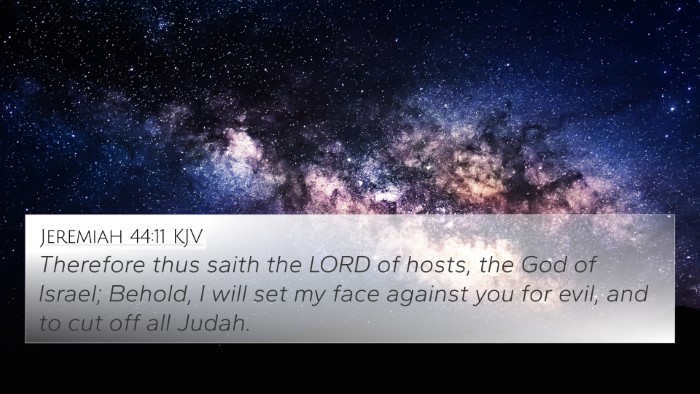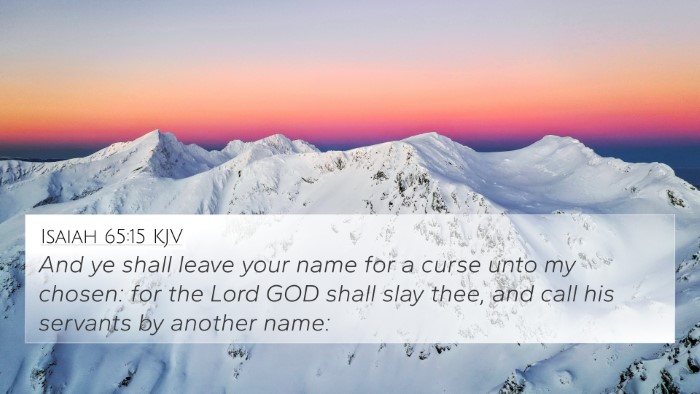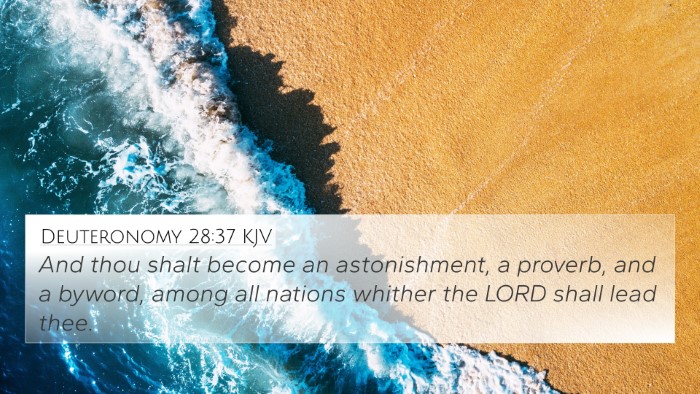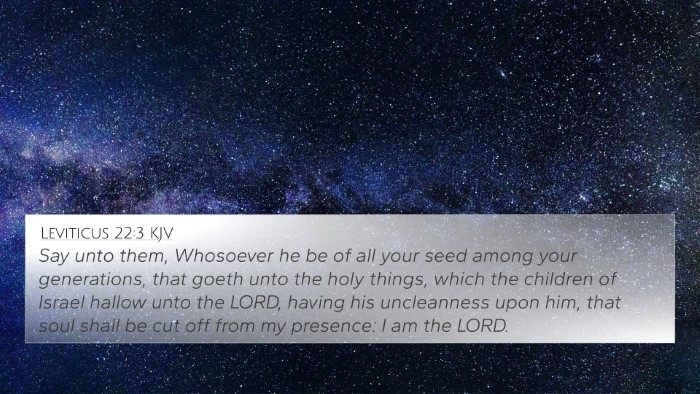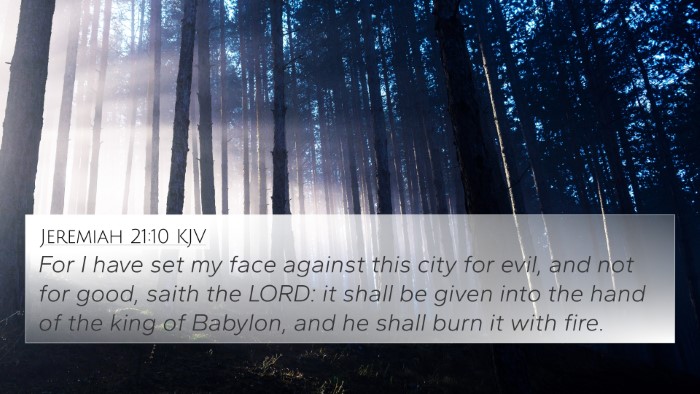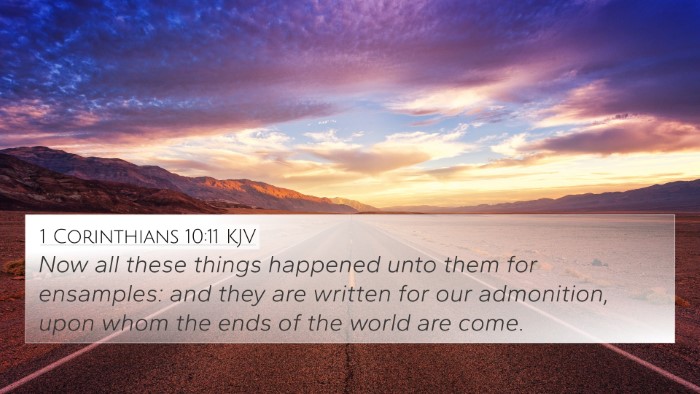Ezekiel 14:8 - Understanding the Verse
Ezekiel 14:8 states: "And I will set my face against that man, and will make him a sign and a proverb, and I will cut him off from the midst of my people; and ye shall know that I am the LORD."
This verse reflects God's response to the idolatry and spiritual rebellion of His people. The surrounding context addresses how individuals who persist in sin would be judged and become warnings to others.
Summarized Insights from Public Domain Commentaries
Matthew Henry’s Commentary
According to Matthew Henry, this verse underscores the seriousness of divine judgment. The phrase “I will set my face against that man” indicates God's active opposition to those who turn away from Him. It highlights the consequences of idolatry, where the offender becomes a "sign and a proverb," serving as a cautionary tale to the community about the repercussions of disobedience.
Albert Barnes’ Notes
Albert Barnes interprets this verse as an expression of God’s displeasure. He emphasizes that being made a “sign and a proverb” signifies that the individual will be an example of the fate that awaits those who defy God. The act of cutting off a person from among His people points to severe exclusion from the community of faith, affirming God's justice.
Adam Clarke’s Commentary
Adam Clarke focuses on the relational aspect of divine retribution, articulating that God’s face set against a person reflects a withdrawal of favor and protection. The implication of being cut off is both physical and spiritual, emphasizing the severity of sin and the importance of returning to God for mercy and reconciliation.
Cross-References Relevant to Ezekiel 14:8
- Isaiah 1:15-17 - Discusses how God will not listen to prayers when hands are filled with iniquity.
- Jeremiah 44:4-5 - Warns against idolatry and the consequences of turning from God.
- Leviticus 20:3 - Describes the severe punishment for turning to idolatry.
- Ezekiel 18:30 - Calls for repentance to escape judgment.
- Romans 1:24-25 - Discusses the consequences of exchanging truth for lies, relevant to idolatry.
- Matthew 5:13-14 - Highlights the importance of being a light, warning against becoming a sign of disobedience.
- Revelation 3:16 - Speaks of being lukewarm and the rejection of those not fully committed to God.
Thematic Connections and Interpretations
The verse serves as a reminder of God’s character as both just and merciful. When exploring themes like divine judgment, idolatry, and the nature of God's relationship with His people, we can find numerous connections between various Bible verses. Understanding these relationships can enhance our study of Scripture.
Understanding Bible Verse Connections
Finding connections between Bible verses allows us to see a larger narrative woven throughout the Scriptures. Ezekiel 14:8 serves as a warning that echoes across both the Old and New Testaments regarding idolatry and disobedience to God.
When engaging in comparative Bible verse analysis, these resources can be beneficial:
- Bible concordance - A systematic listing of verses that provide easy navigation through themes.
- Bible cross-reference guide - Helps in recognizing themes shared among different scriptures.
- Cross-reference Bible study - Traditional methods to engage in deeper theological exploration.
SEO Keywords Applied in Context
This exploration of Ezekiel 14:8 permits a multi-faceted understanding of related scriptures, creating a robust framework for interpretation. Understanding how these themes resonate throughout the Bible allows readers to grasp God's message more clearly, aiding in sermon preparation and personal study.
Cross-references such as those found in Ezekiel alongside New Testament parallels like Romans 1:24-25 articulate how the themes of judgment and idolatry persist across both Testaments, enriching the Bible verse parallels in our theological studies.
Conclusion
In summary, Ezekiel 14:8 serves as a beacon of God’s justice and a warning against idolatry. The insights from various commentaries underscore the importance of fidelity to God and the serious implications of abandoning faith. By using tools for Bible cross-referencing, readers can uncover insights and connections that deepen their understanding of Scripture.





